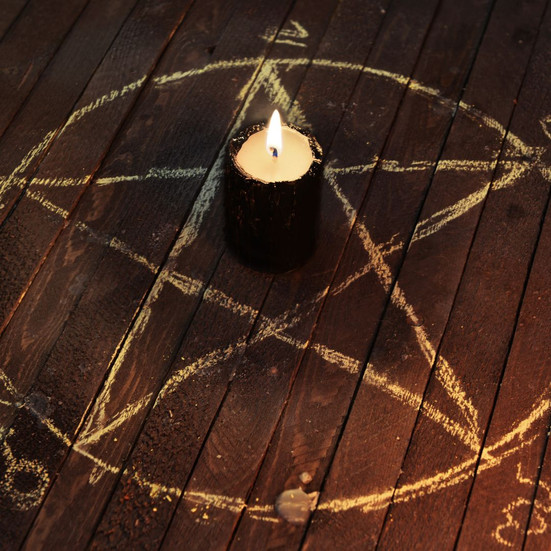One Step Forward, Two Steps Backward by Kerala Marxists
- Marydasan John

- Aug 1, 2025
- 5 min read
“Science is the great antidote to the poison of superstition,” said Adam Smith. “It shall be the duty of every citizen of India to develop the scientific temper and the spirit of inquiry and reform,” says Article 51A of the Constitution of India.

But Marxists in Kerala are finding it very difficult to strike a balance between theory and praxis, despite having an avowed belief that religion is an opium. They attempted several times to send across a message that they would act against superstitions such as black magic and sorcery with an iron hand, but each time they turned around and left it in the cold storage despite reports of ghastly acts appearing frequently in the media from across the state.
An NRI businessman in Kasargod district of north Kerala was murdered after he was tricked into believing that the gold he possessed could be doubled through black magic. After pocketing his gold collection, he was murdered by four persons to avoid returning the jewellery.
Last year, three persons, including a young couple and their friend from Thiruvananthapuram, were found dead in a hotel in Arunachal Pradesh. Enquiries revealed that they were following a group involved in discussing absurd content related to sorcery and black magic online. All three were well-educated and professionally doing well. In yet another horror story, two women were sacrificed by three persons in Pathanamthitta district of Kerala as part of occult rituals to make monetary benefits. The accused were in serious financial trouble and committed the crime as they believed it would bring them financial benefits in a big way.
A few years back, a family of four was wiped out by a young man who believed that his power of black magic had been taken back by the head of the victims’ family, who had taught him the same. As a revenge, he, along with his friend, murdered the entire family and buried the bodies in a pit.
Interestingly, the same year, a senior Congress leader had filed a police complaint against unknown people for allegedly trying to use "black magic" against him. He told the police that he had found some suspicious objects buried in his garden. Last year, the Deputy Chief Minister of Karnataka, D. K. Shivakumar, had made a stunning claim that black magic was performed in an isolated place in Kerala against him, the Chief Minister and the party to destabilise the Congress government in the state.
These incidents expose the dark underbelly of a state that was the torchbearer of social reforms; it is also the state where a communist government came to power for the first time in the world through democratic elections. Yet, the Pinarayi Vijayan-led Left Front government has been dilly-dallying to come hammer and tongs at black magic, sorcery, and similar instances with brutal impacts. With 95.3 per cent of people counted as literate, the society presents a picture drowned in irrationality and superstitions. Reports of tragic, traumatic and exploitative incidents of black magic, exorcisms testify to it.
In the wake of several blood-curdling and superstition-inspired crimes, the government, a couple of years back, had decided to enact a law to put an end to such sordid practices. The state government had informed the Kerala High Court, in a PIL filed by the Kerala Yukthivadi Sangham, of its intention in this regard.
Govt. makes a U-turn
However, in a surprise move, it informed the court on June 21 this year that it had taken a policy decision against legislating these practices. It said so on oath in a PIL filed in the aftermath of a human sacrifice case in the state in which two women were murdered allegedly as part of a black magic ritual. The state government’s decision to backtrack on the anti-Superstition Bill was quite surprising in view of increasing cases of human sacrifices and other violent acts linked to black magic and sorcery.
The PIL had stated that there was a pressing need for a specific law in Kerala to control such acts. In the wake of public outcry, and after being pulled up by the High Court, the Left-led government on July 15 made yet another somersault, informing the court that a legislation banning black magic, sorcery and other superstitious practices is under consideration, without making any commitment on its time-frame.
The Kerala Law Reforms Commission, headed by Justice (Rtd.) K. T. Thomas, had in its 2019 report pressed for such a legislation. It had recommended measures to tackle these practices. Acting on its recommendation, the Left Front government prepared a Bill titled “The Kerala Prevention and Eradication of Inhuman Evil Practices, Sorcery and Black Magic Bill, 2022.”
The Bill, which has now been discarded, had proposed stringent punishment for evil practices and cheating in the name of sorcery or black magic.
It provided for a sentence up to seven years in prison and fines ranging from Rs. 5,000 to 50,000 in case of death or murder due to the performance of the above acts; it could invite the death penalty for crimes ranging from ‘expelling ghost’ to isolating women for menstruation.
Earlier, the Kerala Shastra Sahitya Parishad (KSSP), the Kerala chapter of People’s Science Movement, had presented a draft titled Superstitious and Evil Practices (Prevention and Eradication) Bill to then Chief Minister Oommen Chandy. The draft had followed the Maharashtra Prevention and Eradication of Human Sacrifice and other Inhuman, Evil and Aghori Practices and Black Magic Act, 2013, which had originally been drafted by rationalist Narendra Dhabolkar in 2003.

The main reason for the Kerala Government to drop the Bill is reported to be the challenges in defining "superstition" in a way that doesn't infringe on religious freedom and practices. In recent times, there is ample evidence to show that people are increasingly drawn towards superstition and irrational practices. Many of these superstitions are linked to religious practices and rituals that are deeply rooted in people’s psyche.
Take, for example, the black magic involving Chathan or Kuttichathan, considered to be the dark avatar of Vishnu, who has the power to destroy one’s love life, business dealings, etc. He can also set one’s life right if he is placated. Some people offer occult/black magic services for a heavy price, both for negative and positive intentions.
Surprisingly, seekers of such practices include politicians, film stars, industrialists, and common people. The peddlers who offer faith-based magical solutions have wide acceptability in a society which was once the cradle of revolutionary social reformers who fought tooth and nail against superstitions, black magics, and occult practices. Superstitious beliefs and practices are not limited to any one religion. Believers in all faiths have taken to them.
In the last few years, a debate has been going on among a section of the Muslim community whether the belief in ‘jinn possession’ is real and black magic can have an impact on human beings. Some take it as an opportunity to make money and perform exorcisms on individuals believed to be possessed. Sometimes, the victims are subjected to torture and humiliating behaviour.
The Christian community believes in devils entering human bodies and priests exorcising them. The ‘experts’ in this field are known as ‘devil catchers’; various Christian churches recognize such practices, though with caution. However, subjecting the victims to brutalities or killings in the name of such awful practices is generally not practised among the Christians. The vernacular newspapers that were once reluctant to give space for advertisements for such occult practices now do not shy away from giving publicity to them.
Kerala’s dark underbelly
The state, which has given birth to several social reformers like Narayana Guru, and was in the forefront of spreading literacy and education, seems to be in reverse gear, going by the gruesome incidents of black magic/occult performances witnessed in the recent months.
.png)








Comments